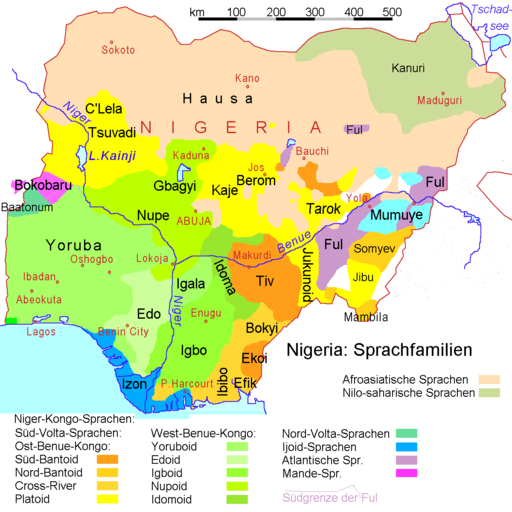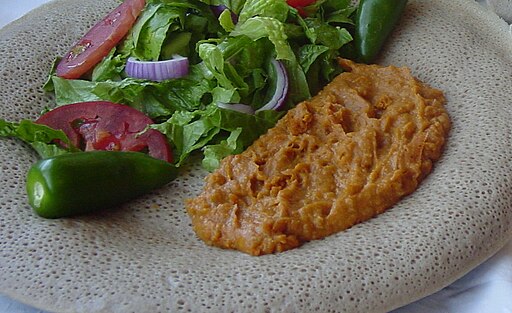 So no “two cats in the yard”, but still my new home in Abuja is worthy of Crosby, Stills, Nash and Young singing its praises. A couple of weeks ago I moved from the apartment I had been sharing with another volunteer in Zone 2 to this one in Wuse2. Wuse 2 is probably a bit more “up market” with not so many blocks of flats more houses of multiple occupancy type structures and more trees. I have already seen, but failed to photograph a quite large, parrot type bird (African grey? – much bigger than a pigeon anyways, and certainly with a parrot like beak) eating fruit from a tree in our back yard. I digress, back to the house move. No big reason, my ex flat mate finished her placement although she is staying on as an interim programme manager, providing cover for the programme manager who is on a year’s secondment to VSO Sierra Leone. At the same time there was a shuffle of continuing volunteers merging us into fewer houses in Abuja where rents are very high. I am now sharing with existing volunteer A from Uganda and new volunteer C from the USA.
So no “two cats in the yard”, but still my new home in Abuja is worthy of Crosby, Stills, Nash and Young singing its praises. A couple of weeks ago I moved from the apartment I had been sharing with another volunteer in Zone 2 to this one in Wuse2. Wuse 2 is probably a bit more “up market” with not so many blocks of flats more houses of multiple occupancy type structures and more trees. I have already seen, but failed to photograph a quite large, parrot type bird (African grey? – much bigger than a pigeon anyways, and certainly with a parrot like beak) eating fruit from a tree in our back yard. I digress, back to the house move. No big reason, my ex flat mate finished her placement although she is staying on as an interim programme manager, providing cover for the programme manager who is on a year’s secondment to VSO Sierra Leone. At the same time there was a shuffle of continuing volunteers merging us into fewer houses in Abuja where rents are very high. I am now sharing with existing volunteer A from Uganda and new volunteer C from the USA.
 The apartment is a 3 bed upper floor of a house. On the ground floor there is another 1 bed apartment which also houses a VSO Volunteer, B, from Mali/Canada, our apartment share the same outside door. Round the rear of the house is a completely separate entrance to a third flat, the residents of which I have not met yet.
The apartment is a 3 bed upper floor of a house. On the ground floor there is another 1 bed apartment which also houses a VSO Volunteer, B, from Mali/Canada, our apartment share the same outside door. Round the rear of the house is a completely separate entrance to a third flat, the residents of which I have not met yet.

As is typical of this area of town, the houses all have what is commonly referred to ass the “BQ”, the boy’s quarters, where Godswell, our gatekeeper stays. He keeps the yard clean and tidy, lets cars in and out, provides security cover when no one is at home and through the night.

Inside, the apartment is huge: by far the biggest VSO apartment I have ever seen. We rattle around in it. Our lounge is big enough for table and chairs, two sofas and armchairs with space to spare. 2 of the 3 bedrooms have en suite: with water heaters that work; with shower attachments that work. So although we dutifully keep large water buckets full in case the water goes off, so far we have not needed this supply. I hope I am not tempting fate :) Likewise 2 of the 3 bedrooms, and the sitting room have balconies, just big enough for a chair and for standing laundry out to dry, although we are also spoiled by having lines already provided in our yard, albeit that we share them with the two other apartments.
 My room is simple: it has built in hanging space and shelves – in fact too much space for my small Nigerian wardrobe. I have a nice new desk which arrived last week and is heavily used as I do quite a bit of work in the evenings and weekends for my placement organisation.
My room is simple: it has built in hanging space and shelves – in fact too much space for my small Nigerian wardrobe. I have a nice new desk which arrived last week and is heavily used as I do quite a bit of work in the evenings and weekends for my placement organisation.
My bathroom, although not ensuite is adjacent, I picked this room thinking it could be the quieter of the rooms being one of two at the back of the house away from the road, and because it had the balcony.
 The kitchen is where one gets one’s exercise – walking back and forth between the gas rings, fridge, shelves and cupboard which are scattered along opposite walls. With little the way of other furniture it always seems really empty.
The kitchen is where one gets one’s exercise – walking back and forth between the gas rings, fridge, shelves and cupboard which are scattered along opposite walls. With little the way of other furniture it always seems really empty. 
Again as volunteer accommodation goes it a enormous, plenty of room for a kitchen table if we had one. It does have cupboard space, and we are using our bookshelves as open shared storage space because unfortunately we have a cockroach problem which we are having to spray the cupboards to try and eliminate.
The local area is different than where I was previously, there are shops 5 mins walk up onto the main road, including a reasonable sized local bigger then mini- but not a super-market. There are restaurants and beer gardens. In fact the nearest beer garden, AfroAsia, is almost immediate across our street, just round the corner. A very pleasant place to sit out with a drink, although food there is too expensive. A much better bet is newly opened “Dreams” up on the man road about a 10 minutes walk away. There, a number of vendors share a seating area. One I have found sells “suya”, the local delicacy – very spicy, flattened pieces of meat, flamed on skewers, the Niaja kebab in effect. Often suya is too full of pepe, the local chilli,, for me, but this guys seems OK. Moreover he does a mean “hanta” and “koda” one i.e. liver and kidney respectfully in Hausa, for 200N each, compared to 700-800 as the going rate for “schwrama” – like a donor kebab – and meat of chicken suya. I’ve had one so far and it was delightful, beautifully cooked, tender pieces of liver – not everyone's taste but definitely mine, lips smackingly good, so I’ll be back. Makes a change having these type of things on your doorstep.
The downside is you don’t see your neighbours because they arrive home by their cars and go behind their gates, never to be seen till their car leaves in the morning. I want to meet our neighbours to the side, one of the men and one of the women there sing and they have beautiful melodic voices.
So this is my home now through the rest of my placement.
 We took a trip to the weekly market in one of the neighbouring villages of Obi, still in Nassarawa State. Here are some of the sights of the village. A lovely day spent just walking around chatting with the locals, being asked to “Snap me” ie take my photo . I am always very careful about photographing people and always ask their permission, unless it is a crowd shot. Everyone was really friendly, including one old lady who stopped by me and when I said the usual Ina Kwana was rewarded with a long piece of Hausa which conveyed that she had never seen a white woman in this market before today.
We took a trip to the weekly market in one of the neighbouring villages of Obi, still in Nassarawa State. Here are some of the sights of the village. A lovely day spent just walking around chatting with the locals, being asked to “Snap me” ie take my photo . I am always very careful about photographing people and always ask their permission, unless it is a crowd shot. Everyone was really friendly, including one old lady who stopped by me and when I said the usual Ina Kwana was rewarded with a long piece of Hausa which conveyed that she had never seen a white woman in this market before today. One item which interested me was the local soaps markets here alongside western style toiletries.
One item which interested me was the local soaps markets here alongside western style toiletries.




























![PB020230_thumb[1] PB020230_thumb[1]](https://blogger.googleusercontent.com/img/b/R29vZ2xl/AVvXsEhAIF4kJuBiqSBNmQz7VYjwwUYYWGaDVOsv5LnGPP_4H9A7kDL9WlYvK4e_JoUcKqTMRPVlWIs9ewxy8KfhKoKMfGAhm-xf4w3fdgq-yymZMl28xTcRkXxgAGQE2bM8T5xj4-5UJF8vXlE/?imgmax=800)







 Dark Matter
Dark Matter









